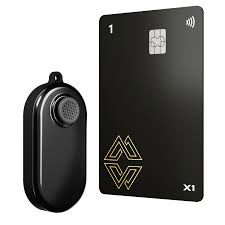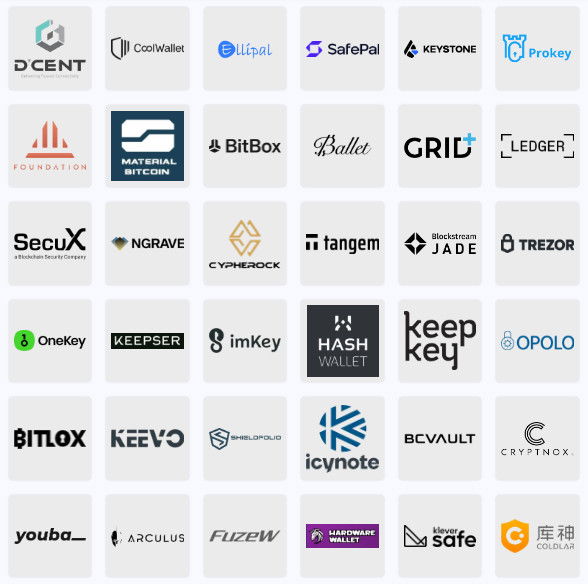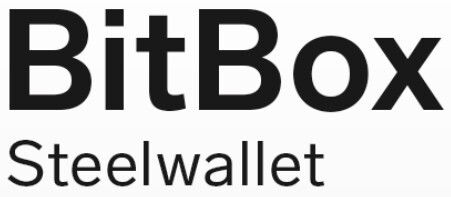Hardware Wallets: Are They Fully Hack-Proof for Secure Crypto Storage?

- Can hardware wallets be hacked?
- Are cold wallets fully hack-proof for secure crypto storage?
- Find it out in this article
- Also understand how Cypherock X1 seedless hardware wallet promises to enhance security for Crypto storage
Introduction
As the popularity of cryptocurrencies grows, guaranteeing the security of one’s digital assets has become a top priority for cryptocurrency holders. With multiple high-profile crypto thefts and breaches announced, many investors are turning to hardware wallets to safely store their cryptocurrency.
Hardware wallets are physical devices meant to hold private keys safely offline, reducing the danger of internet breaches and thefts.
However, like with any security solution, the issue of whether hardware wallets are actually hack-proof and secure for storing crypto is always there.
In this article, we will go into the realm of hardware wallets, investigating their security features, possible weaknesses, and recommended practises for cryptocurrency storage.
Content
- Hardware Wallets Explained
- Hardware Wallet Security Features
- Risks & Vulnerabilities
- Risk Reduction and Best Practises
- Cypherock X1 Hardware Wallet: How Cypherock promises to enhance security for Crypto storage
Hardware Wallets Explained
A hardware wallet is a physical device that keeps the private keys needed to access and transfer cryptocurrencies. It is often in the form of a USB device or specialised piece of hardware. Private keys are cryptographic keys that are used to sign transactions and authenticate cryptocurrency ownership. In contrast to software wallets, which store private keys on internet devices like as computers or mobile phones, hardware wallets keep private keys offline, reducing the danger of online assaults, malware, and phishing attempts.
Hardware wallets often have a built-in screen and buttons that enable users to confirm transactions and check the recipient address directly on the device, adding an extra degree of protection. To use the device, some hardware wallets demand users to input a PIN number, which further protects against unauthorised access.
One of the primary benefits of hardware wallets is that they are not linked to the internet, which minimises the danger of online assaults dramatically. This is known as “cold storage” or “air-gapped” storage, and it involves keeping the private keys offline and away from possible dangers.
Hardware Wallet Security Features
Hardware wallets are built with several security mechanisms to safeguard private keys and guarantee cryptocurrency storage is secure. Let’s look at some of the most important security characteristics of hardware wallets:
Private Key Isolation: Hardware wallets hold private keys offline, preventing them from being accessible to the internet or vulnerable to online hacking.
Strong Encryption: Hardware wallets utilise strong encryption methods to safeguard private keys and transactions, making unauthorised access exceedingly difficult.
Two-factor authentication: To provide an extra degree of protection, several hardware wallets require users to input a PIN number or password before accessing the device.
Transaction Verification: Transaction details are often shown on the device’s screen, enabling users to check and confirm the transaction before signing it. This prevents unauthorised transactions from taking place.
Backup of a Seed Phrase: Hardware wallets create a seed phrase, also known as a recovery phrase or backup phrase, which is a set of words that may be used to restore the wallet in the event of loss or damage. The seed word is often shown on the device’s screen and must be copied and safely kept offline.
The Firmware updates: Hardware wallets often get firmware upgrades to address security flaws and enhance efficiency. Keeping the firmware up to date is critical to ensuring the hardware wallet’s continuing security.
Many hardware wallets employ open-source software, allowing the community to audit the code and discover any security problems. This improves the hardware wallet’s overall security.
Risks & Vulnerabilities
While hardware wallets provide strong security, they are not immune to flaws and hazards. To guarantee the secure storage of cryptocurrencies, it is critical to recognise and prevent these possible risks. Let’s look at some of the concerns linked with hardware wallets:
Theft or Loss of Physical Property: Hardware wallets are tangible objects that may be misplaced, stolen, or destroyed. If a hardware wallet is stolen, the private keys held on the device may be compromised, resulting in the loss of cash. As a result, it’s critical to maintain the hardware wallet safe and secure, ideally in a physical area that others can’t readily access.
Vulnerability of the Seed Phrase: The seed phrase, which is used to recover a hardware wallet in the event of loss or damage, is a vital component of a hardware wallet’s security. If the seed phrase is not securely saved offline or is accessible to unauthorised parties, it might lead to money theft. As a result, it’s critical to write down the seed word and keep it somewhere safe and secure, away from prying eyes and any threats. Even in this case, there might be instances where the seed phrase might be stolen. And this is the very reason, startups like Cypherock are eliminating seed phrases and working on a mission to give back control to the users completely. Cypherock is the first truly decentralized cold wallet for secure crypto storage.
Supply Chain Attacks: Hardware wallets are made and distributed through a supply chain that may be compromised. During the manufacturing process, hostile actors may tamper with the hardware wallet, adding backdoors or other malicious components that might undermine the device’s security. To reduce this danger, obtain hardware wallets from trusted vendors and verify the device’s legitimacy before usage.
Firmware Vulnerabilities: While firmware upgrades are designed to increase hardware wallet security, they may potentially bring possible vulnerabilities if not performed correctly. Hackers may use firmware flaws to get unauthorised access to the hardware wallet and compromise the private keys. As a result, it’s critical to maintain the hardware wallet’s firmware up to current with the most recent security fixes and upgrades.
Social Engineering Attacks: To access a hardware wallet, users must input a PIN number or password. Social engineering attacks, such as phishing or scamming, may deceive users into divulging their PIN number or password, enabling hackers unauthorised access to the hardware wallet. Always be wary of any questionable emails, texts, or demands for personal information, and never reveal PIN numbers or passwords with anybody.
Human mistake: Human mistake may potentially jeopardise the security of hardware wallets. For example, repeatedly inputting the erroneous PIN code might result in the hardware wallet being locked or reset, possibly resulting in the loss of cash. To prevent user mistakes, it’s critical to carefully follow the manufacturer’s instructions, double-check transaction details, and exercise caution while entering PIN numbers or passwords.
Risk Reduction and Best Practises
While hardware wallets are widely regarded as one of the most secure means of keeping bitcoins, it is critical to adhere to best practises and take the required safeguards to reduce possible dangers. Here are several recommended practises for safely utilising hardware wallets:
Purchase from trustworthy Sources: To guarantee authenticity and limit the danger of supply chain attacks, always buy hardware wallets from trustworthy sources like as the manufacturer’s official website or authorised resellers.
HARDWARE WALLETS OFFICIAL ONLINE STORES
Visit the official online stores of manufacturers of the best hardware wallets, learn more about new models and prices, buy hardware wallets with discounts and promo codes, without intermediaries and without overpayment
Set Strong PIN Codes and Passwords: For your hardware wallet, use strong and unique PIN codes or passwords, and avoid using readily guessable information. To increase security, avoid discussing PIN numbers or passwords with anybody and update them on a regular basis.
Offline Storage of the Seed Phrase: Write down the seed phrase on paper and securely store it offline in different physical places, such as a safe deposit box or a locked drawer. Never save the seed phrase digitally or take a screenshot of it since it might be hacked online.
Verify Transaction information: Before confirming and signing the transaction, always double-check the transaction information on the device’s screen. Check that the recipient’s address matches the intended address and that the transaction amount is correct.
Maintain Firmware Updates: To defend against any firmware vulnerabilities, check for manufacturer firmware updates on a regular basis and maintain your hardware wallet’s firmware up to date with the latest security patches and upgrades.
Enable Extra Security Features: Many hardware wallets provide extra security features like multi-factor authentication or passcode protection. Enable these features for enhanced protection and tailor them to your requirements.
Be Wary of Social Engineering Attacks: Be wary of phishing efforts, scam emails, or demands for personal information pertaining to your hardware wallet. Never discuss your PIN number, password, or seed phrase with anybody, and always double-check the legitimacy of any hardware wallet transmission.
Maintain Backups: Make numerous backups of your seed phrase and keep them securely in separate physical places. This ensures that you may retrieve your cash in the event that your hardware wallet is lost or damaged.
Test the Recovery procedure: Before depending only on your hardware wallet to hold your cryptocurrency, test the recovery procedure using the seed phrase to confirm that you can successfully restore your wallet in the event of an emergency.
Stay Informed: Stay up to speed on the newest hardware wallet and cryptocurrency news, upgrades, and security practises. Join online forums or communities to learn from the experiences of other users and to remain up to date on possible dangers and best practises.
Cypherock X1 Hardware Wallet: How Cypherock promises to enhance security for Crypto storage
Cypherock offers a unique value proposition through it’s secure hardware wallets as it outperforms Ledger and Trezor.
Cypherock X1 has been securely audited and certified by KeyLabs, a hardware security firm that has hacked Ledger previously.
“The Cypherock X1 is an innovative wallet that uses many hardware and software security best practices and even features several security firsts that we have not yet seen in other wallets” — Keylabs.io
Keylabs is an industry leader when it comes to hardware security. Famously known for running WALLET.FAIL, and for their seminar on discovering vulnerabilities in popular hardware wallets as of today. Cypherock X1 hardware wallet has successfully passed the security audit conducted by Keylabs, and has successfully implemented all the improvements suggested during the auditing process. To learn more about the security audit, you can read the full report here.
To understand the improvements suggested, and the fixes made by team Cypherock, you can read the response report here.
Cypherock wallets being seedless ensures that attack vectors on the 24 words recovery phrase are nullified. Cypherock X1 solves the single point of failure both on the hardware as well as on the software layer. The hackers are required to compromise at least 2 of the 5 secure hardware which is practically not possible with sufficient geographical distribution and secure PIN protection to be able to compromise the crypto assets setting a new standard for crypto security.

Cypherock X1 offers the following features, some of them aren’t available in Ledger, Trezor and other hardware wallets in the market:
No more paper backups:
Seed phrases are awful. They expose users’ cryptocurrency to trust concerns, hackers, thefts, fires, earthquakes, and other natural disasters, making it a single point of failure. So, Cypherock got rid of it. Users don’t need to back up their private key using Cypherock X1 since it doesn’t have a single point of failure.
Four Hardware Wallets in One: Unlike other hardware wallets, which only let users to establish one wallet account per device, the Cypherock X1 allows users to create four distinct wallet accounts. Users may use one wallet account for keeping NFTs and another for storing just Bitcoins.
Use it as a vault to keep other seed phrases safe: Goodbye to unsecure wallet backup methods such as a paper or metal plate. Cypherock X1 may also serve as a backup Seed Phrase for other crypto wallets of the users.
No more worrying about losing your cryptocurrency if anything bad happens to you: You must protect your Crypto while you are alive and only transfer it after you die, which is difficult if you are the only one who knows your keys. Cypherock removes the concern of losing cryptocurrency if you die. The assets may be transferred through our beneficiary service without Cypherock or any other party knowing the amount you HODL in the X1 wallet (Go Privacy!) or managing the assets.
Manage your whole cryptocurrency portfolio in a single place: Is your cryptocurrency dispersed among many wallets, making it tough to keep track of everything? By safeguarding your current seed phrases with Cypherock X1, you may manage them all inside CySync App.
Purchase cryptocurrency instantly from the cySync App: CySync app will enable 20 various payment ways through their On-Ramp/Off-Ramp partners, allowing you to acquire Crypto in 15 different currencies straight from the app if you do not already have Crypto.
Open Source with Secure Elements: There is no longer any need to choose between open source and security parts. Open-sourced wallets are vulnerable to physical assaults, while wallets with security aspects are closed-sourced and may have backdoors. Cypherock has combined the best of both environments by decoupling compute and storage. The open source X1 wallet is utilised for calculation. X1 cards are used for storage and feature EAL 5+ security components.
Use the promo code buybit2410, follow this link and get a 10% discount when buying a Cypherock X1 hardware wallet in the official online store of the manufacturer >>>
Conclusion
Hardware wallets are regarded as one of the most secure means of keeping bitcoins. However, they, like any other technology, are not immune to hazards and weaknesses. Some of the possible hazards connected with hardware wallets include physical theft or loss, seed phrase vulnerability, supply chain assaults, firmware vulnerabilities, social engineering attacks, and user mistakes.
Users can mitigate these risks and use hardware wallets securely to store their cryptocurrencies by following best practises such as purchasing from reputable sources, setting strong PIN codes and passwords, storing seed phrases offline, verifying transaction details, keeping firmware updated, enabling additional security features, being cautious of social engineering attacks, keeping backups, testing recovery process, and staying informed.
It’s crucial to remember that cryptocurrency security is an ongoing process that requires awareness, prudence, and adherence to best practises. Hardware wallets may help you safeguard your bitcoins, but they are not perfect. To protect the safety of your cryptocurrencies kept in hardware wallets, it’s critical to be educated, adopt best practises, and stay up to current on the newest security measures.
Source: Cypherock.com
Learn more about the best TOP 30 hardware cryptocurrency wallets
You can see this list here.
TOP 29 Hardware Wallets, the Official Online Stores
| 1 |  | Trezor hardware wallet, the official online store |  |
| 2 |  | Ledger hardware wallet, the official online store |  |
| 3 |  | KeepKey hardware wallet, the official online store |  |
| 4 |  | BitBox02 hardware wallet, the official online store |  |
| 5 |  | CoolWallet hardware wallet, the official online store |  |
| 6 |  | ELLIPAL hardware wallet, the official online store |  |
| 7 |  | D'CENT hardware wallet, the official online store. |  |
| 8 |  | SafePal hardware wallet, the official online store |  |
| 9 |  | SecuX hardware wallet, the official online store |  |
| 10 |  | BC Vault hardware wallet, the official online store |  |
| 11 |  | BitLox hardware wallet, the official online store |  |
| 12 |  | Keystone hardware wallet, the official online store |  |
| 13 |  | ProKey hardware wallet, the official online store |  |
| 14 |  | NGRAVE hardware wallet, the official online store |  |
| 15 |  | Keevo hardware wallet, the official online store |  |
| 16 |  | GridPlus hardware wallet, the official online store |  |
| 17 |  | Ballet hardware wallet, the official online store |  |
| 18 |  | OPOLO hardware wallet, the official online store |  |
| 19 |  | Foundation (Passport) hardware wallet, the official online store |  |
| 20 |  | ImKey hardware wallet, the official online store |  |
| 21 |  | Tangem hardware wallet, the official online store |  |
| 22 |  | HashWallet hardware wallet, the official online store |  |
| 23 |  | Material Bitcoin hardware wallet, the official online store |  |
| 24 |  | ShieldFolio hardware wallet, the official online store |  |
| 25 |  | OneKey hardware wallet, the official online store |  |
| 26 |  | Blockstream Jade hardware wallet, the official online store |  |
| 27 |  | Cypherock hardware wallet, the official online store |  |
| 28 |  | Keepser hardware wallet, the official online store |  |
| 29 |  | NEXA hardware wallet, the official online store |  |

















































